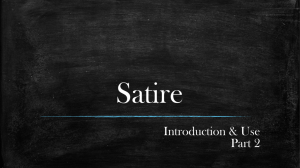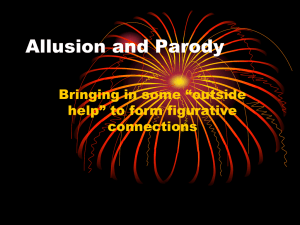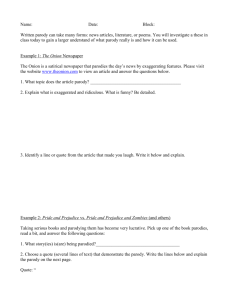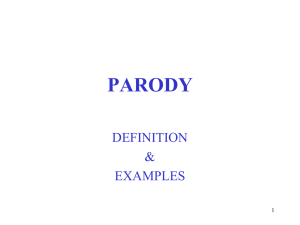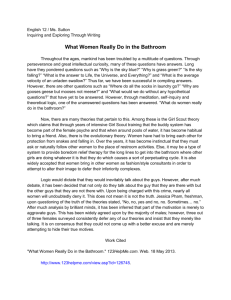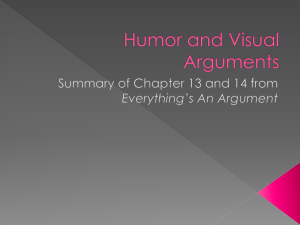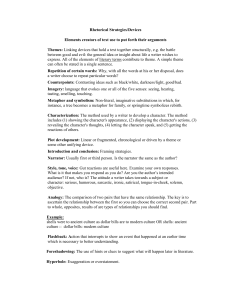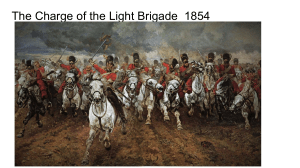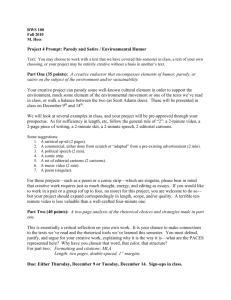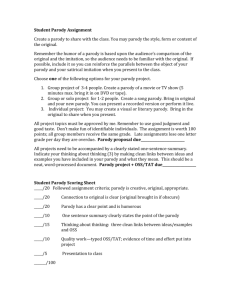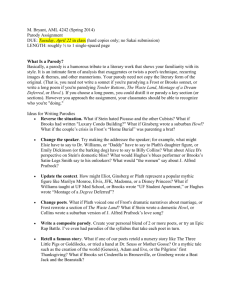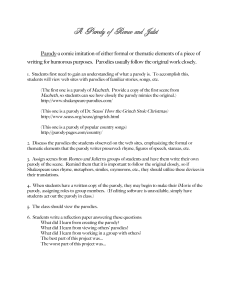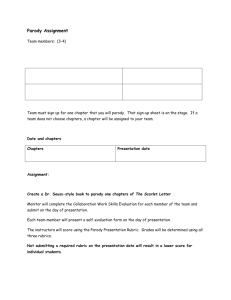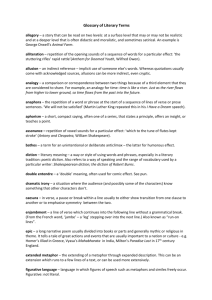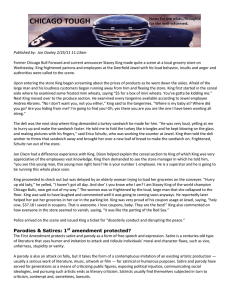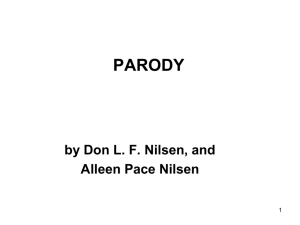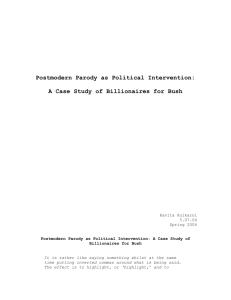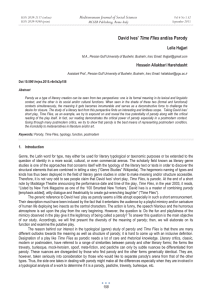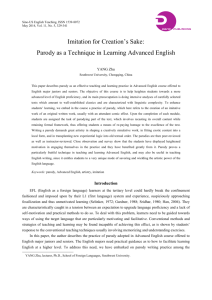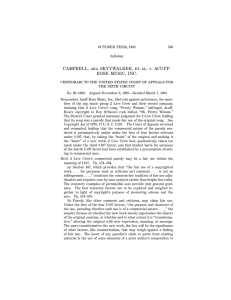Writing Poetic Parodies: The Art of Imitation Comedians like Tina
advertisement
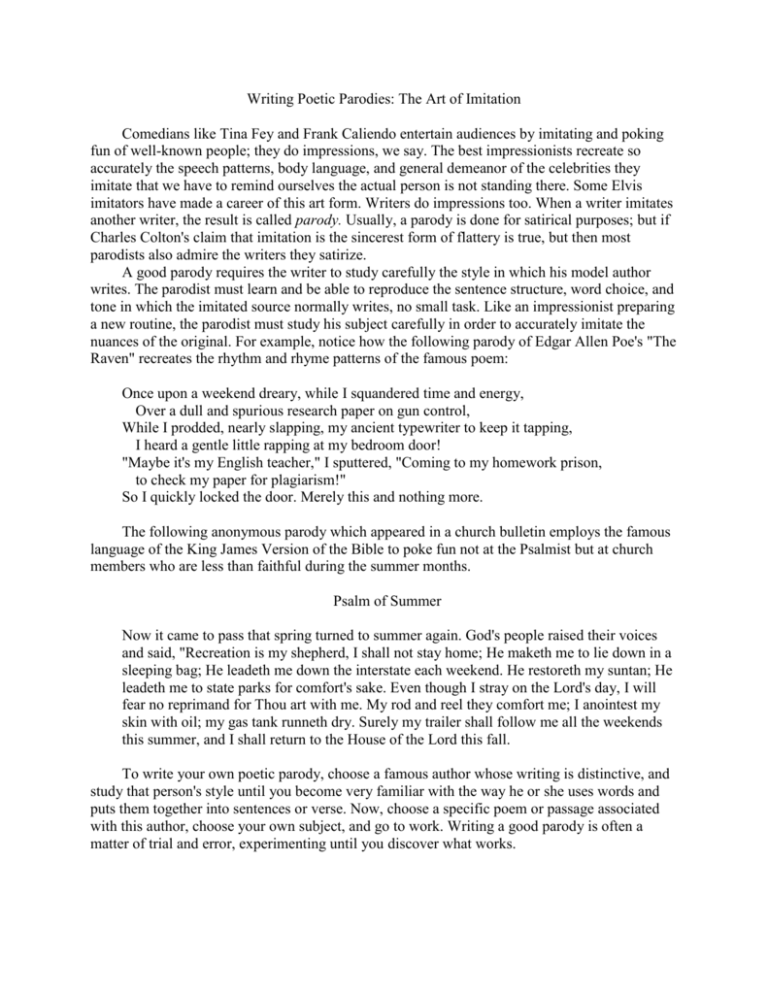
Writing Poetic Parodies: The Art of Imitation Comedians like Tina Fey and Frank Caliendo entertain audiences by imitating and poking fun of well-known people; they do impressions, we say. The best impressionists recreate so accurately the speech patterns, body language, and general demeanor of the celebrities they imitate that we have to remind ourselves the actual person is not standing there. Some Elvis imitators have made a career of this art form. Writers do impressions too. When a writer imitates another writer, the result is called parody. Usually, a parody is done for satirical purposes; but if Charles Colton's claim that imitation is the sincerest form of flattery is true, but then most parodists also admire the writers they satirize. A good parody requires the writer to study carefully the style in which his model author writes. The parodist must learn and be able to reproduce the sentence structure, word choice, and tone in which the imitated source normally writes, no small task. Like an impressionist preparing a new routine, the parodist must study his subject carefully in order to accurately imitate the nuances of the original. For example, notice how the following parody of Edgar Allen Poe's "The Raven" recreates the rhythm and rhyme patterns of the famous poem: Once upon a weekend dreary, while I squandered time and energy, Over a dull and spurious research paper on gun control, While I prodded, nearly slapping, my ancient typewriter to keep it tapping, I heard a gentle little rapping at my bedroom door! "Maybe it's my English teacher," I sputtered, "Coming to my homework prison, to check my paper for plagiarism!" So I quickly locked the door. Merely this and nothing more. The following anonymous parody which appeared in a church bulletin employs the famous language of the King James Version of the Bible to poke fun not at the Psalmist but at church members who are less than faithful during the summer months. Psalm of Summer Now it came to pass that spring turned to summer again. God's people raised their voices and said, "Recreation is my shepherd, I shall not stay home; He maketh me to lie down in a sleeping bag; He leadeth me down the interstate each weekend. He restoreth my suntan; He leadeth me to state parks for comfort's sake. Even though I stray on the Lord's day, I will fear no reprimand for Thou art with me. My rod and reel they comfort me; I anointest my skin with oil; my gas tank runneth dry. Surely my trailer shall follow me all the weekends this summer, and I shall return to the House of the Lord this fall. To write your own poetic parody, choose a famous author whose writing is distinctive, and study that person's style until you become very familiar with the way he or she uses words and puts them together into sentences or verse. Now, choose a specific poem or passage associated with this author, choose your own subject, and go to work. Writing a good parody is often a matter of trial and error, experimenting until you discover what works.
